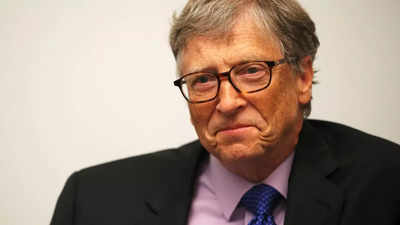Bill Gates predicts AI could lead to a two-day workweek within a decade, citing rapid automation. The Microsoft co-founder suggested AI’s advancement will significantly reduce the need for human labour, highlighting potential AI impacts on professions like medicine and education, envisioning widespread access to AI-driven services.
“And it’s [AI technology] kind of profound because it solves all these specific problems, like we don’t have enough doctors or mental-health professionals but it brings with it kind of so much change,” Gates said on “The Tonight Show” aired in February but has gone viral recently.
“You know, what will jobs be like? Should we, you know, just work like 2 or 3 days a week? So I love the way it’ll drive innovation forward, but I think it’s a little bit unknown,” he added.
Gates previously hinted at a significant reduction in working hours. In 2023, during the nascent stages of ChatGPT’s development, he suggested that society might “eventually” transition to a scenario where a three-day work week becomes the norm.
Gates shares two professions that will be most impacted by AI
Regarding the specific professions likely to be most impacted by AI’s encroachment into the workplace, Gates acknowledged that certain sectors will undergo more profound transformations than others. In his conversation, he specifically identified doctors and teachers as two domains poised for significant change, albeit with the potential for substantial societal benefits.
“With AI’s continued development over the next decade, intelligence will become freely available and commonplace, providing access to excellent medical advice and exceptional tutoring,” Gates explained.
While he acknowledged that certain human-centric activities, such as professional baseball, will likely remain within the human domain, he envisions a future where AI handles virtually all other tasks.
“There will be select activities that we reserve for ourselves, but in terms of manufacturing, logistics, and food production—over time, those will essentially become solved problems,” Gates concluded




